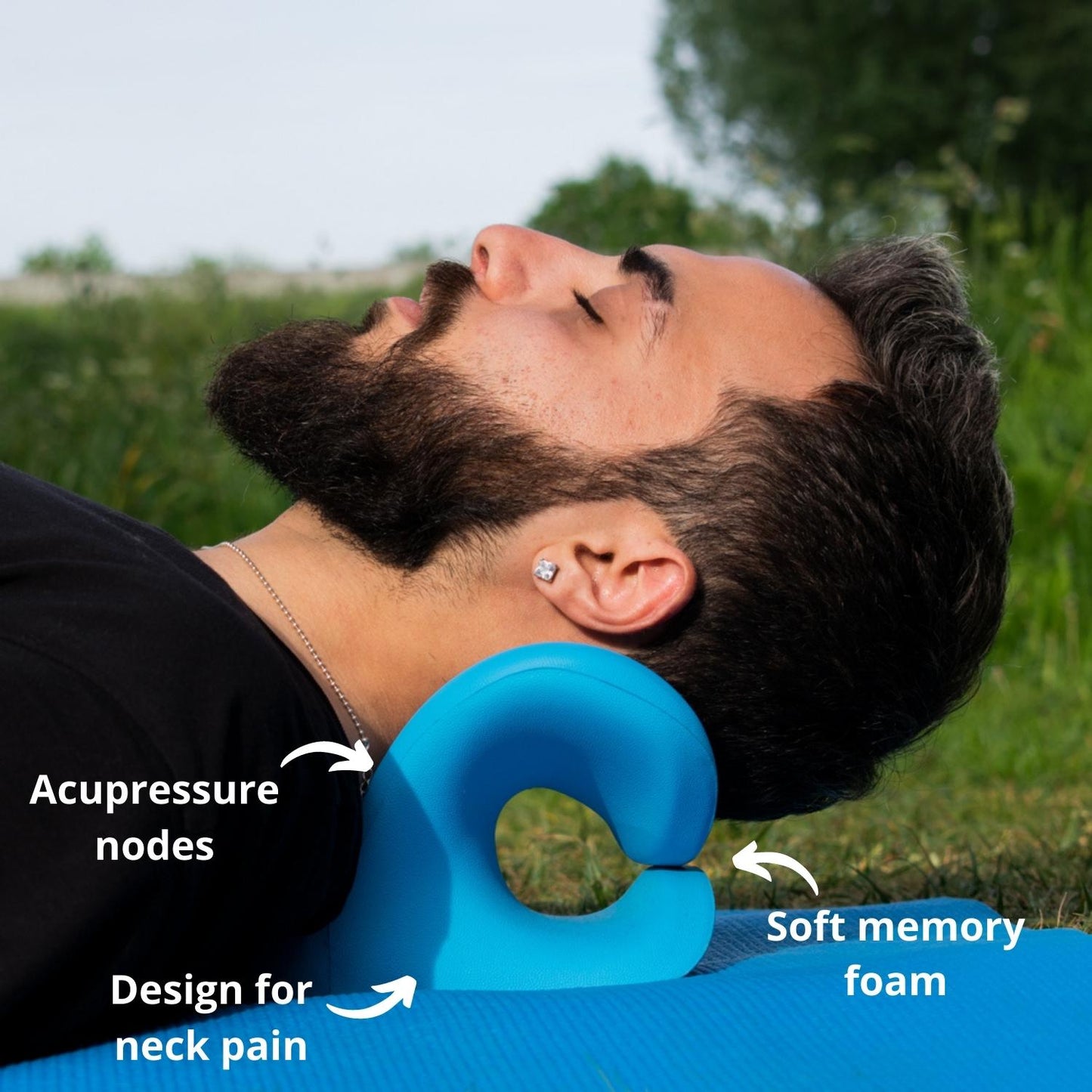Improve Your Position and Decrease Neck Pain with the Neck Cloud
Improve Your Position and Decrease Neck Pain with the Neck Cloud
Blog Article
The Impact of Stress And Anxiety on Neck Discomfort: Strategies for Lowering Stress and Pain
In today's busy world, it's no trick that stress and anxiety has actually ended up being a prevalent element in the beginning and exacerbation of neck pain. Join us on a trip to untangle the impact of tension on neck pain and discover efficient means to reduce pain and improve overall top quality of life.
Comprehending Stress-Related Neck Discomfort
Stress-related neck discomfort can materialize as stress, rigidity, or pain in the neck and shoulder location. The link between stress and neck discomfort exists in the body's physical response to stress, which can result in muscular tissue stress and rigidity in the neck muscular tissues.

Identifying Common Stress Locations
Often experienced by people under stress, stress areas in the body can supply valuable insights right into the physical symptoms of psychological pressure. One typical tension area is the neck, where tension typically shows up literally. Stress frustrations, rigid neck muscle mass, and limited variety of motion prevail signs and symptoms of stress-related neck stress. The shoulders are an additional common location where tension gathers. Stress and anxiety can trigger the muscular tissues in the shoulders to tighten, resulting in discomfort and discomfort. Additionally, the top back is susceptible to stress build-up, specifically in people who experience chronic stress and anxiety. Poor stance and long term resting can exacerbate tension around. The jaw is likewise a common location for stress-related tension, as many individuals clench their jaw or grind their teeth when emphasized. Recognizing these common stress locations can aid people recognize the physical indicators of tension and take actions to resolve them prior to they escalate right into chronic discomfort or discomfort.
Carrying Out Leisure Techniques
Leisure techniques are useful devices for decreasing neck pain created by stress. Furthermore, tasks like yoga exercise and tai chi incorporate both physical motion and leisure, making them effective practices for minimizing stress and neck pain. By incorporating these relaxation methods right into your day-to-day regimen, you can help manage tension degrees, lower stress in the neck, and reduce discomfort connected with stress-induced neck discomfort.
Including Self-Care Practices
Integrating self-care techniques is important for maintaining general well-being and managing stress-related neck discomfort successfully. continue reading this Involving in normal physical activity, such as gentle stretching exercises or yoga, can help minimize tension in the neck and shoulders. Practicing great position throughout the day and taking frequent breaks from extended sitting or screen time can also prevent strain on the neck muscles.
Furthermore, prioritizing ample rest and developing a regular sleep routine can contribute significantly to reducing stress degrees and advertising relaxation. Creating a calming going to bed regimen, such as checking out a publication or taking a cozy bath, can help prepare the body and mind for relaxed rest. Furthermore, maintaining a well balanced diet regimen rich in nutrients and staying moistened can support overall health and lower swelling that may exacerbate neck discomfort.
Incorporating mindfulness practices, such as deep breathing workouts or meditation, can aid handle tension and advertise leisure. Requiring time for oneself, involving in pastimes, and establishing boundaries to shield personal time are also vital elements of self-care that can add to reducing stress and minimizing neck pain.
Seeking Expert Aid
Exactly how can people properly address relentless neck discomfort that is affecting their day-to-day live and health? Looking for professional assistance can be a crucial action in managing and easing neck discomfort. Consulting with health care professionals such as chiropractics physician, physical therapists, or orthopedic experts can supply beneficial insights and personalized treatment plans. These experts can perform detailed evaluations to identify the underlying root causes of neck pain and suggest proper interventions.
Chiropractics physician specialize in spinal control strategies to boost alignment and decrease stress in the neck location. Physiotherapists offer targeted stretches and exercises to strengthen muscles, improve flexibility, and enhance overall neck feature. Orthopedic professionals can provide advanced medical interventions such as shots or medical alternatives for extreme instances of neck discomfort.
Verdict

Stress-related neck discomfort can materialize as stress, tightness, or pain in the neck and shoulder area. The connection between tension and neck pain lies in the body's physiological reaction to tension, which can result in muscle mass tension and tightness in the neck muscles. Tension headaches, stiff neck muscles, and restricted range of motion are common symptoms of stress-related neck stress. By including these leisure strategies right into your everyday routine, you can help manage stress and anxiety degrees, lower stress in the neck, and alleviate pain linked with stress-induced neck discomfort.

Report this page